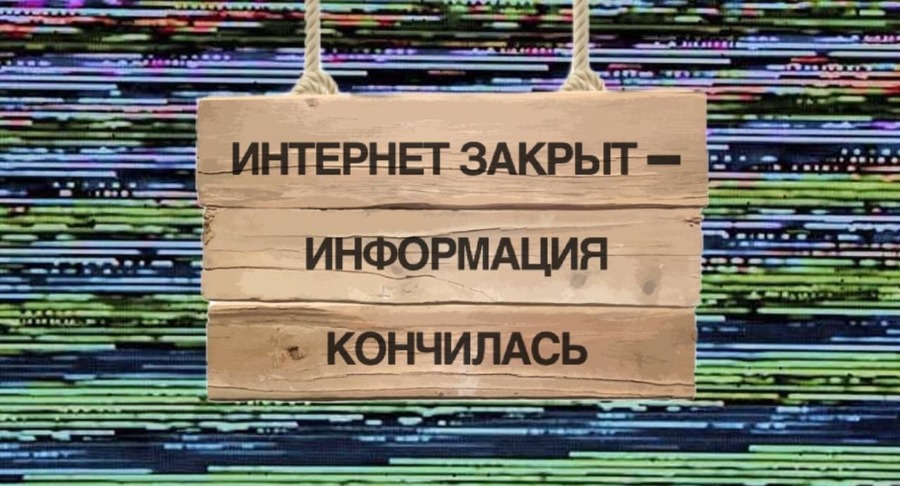Russia May Introduce Law to Restrict a Wide Range of Online Information
The State Council of Tatarstan has formed a working group to develop proposals for improving legal regulations aimed at restricting the spread of destructive information on the Internet, including on social networks. This was reported by the press service of the parliament. The group is headed by Deputy Speaker Marat Akhmetov (United Russia).
Chairman of the State Council Farid Mukhametshin explained to journalists that “our task is to create a legislative framework so that destructive and dangerous content does not exist on the Internet.” At a meeting with chief editors of republican media, he said, “I am confident that social networks and other online platforms will learn to block such content, or better yet, prevent it from being posted at all.”
He also expressed concern about the promotion of alcohol, vapes, snus, drugs, and the involvement of children in their sale on social networks, as well as the promotion of profanity, anti-family propaganda, devaluation of the role of parents, sadism, depressive and suicidal content, blackmail and extortion, violence and extremism, anti-religious content, and “Columbine communities.” The working groups will prepare legislative initiatives on all these issues. “We need to think about our children and their future,” Mukhametshin emphasized.
According to the publication, the bill may be officially submitted to the State Council and then sent to the State Duma.
Background: The Kazan School Tragedy
The initiative was prompted by the tragedy at Kazan Gymnasium No. 175. On May 11, a graduate killed seven students and two teachers, and 23 others were injured. It was reported that he was interested in computer games and had posted about his plan to attack the school on social networks. The accused, Ilnaz Galyaviev, is currently in pre-trial detention and is charged with multiple counts of murder.
In April, even before the school incident, the Tatarstan parliament had already raised the issue of “children’s information security on the Internet.” At a roundtable led by Deputy Speaker Tatyana Larionova, participants suggested limiting the time children spend on social networks, even recommending buying them basic phones. Tatarstan’s children’s ombudsman, Irina Volynets, called for an age limit for social media registration, though not all deputies supported this idea.
Currently, the authorities are concerned about the “heroization” of the Kazan shooter on social networks. President of Tatarstan Rustam Minnikhanov noted that the authors of such posts “not only fail to condemn the brutal crime, but encourage similar actions.” He called for law enforcement to pay special attention to any attempts to romanticize the criminal. Recently, Roskomnadzor reported that over 300 materials containing destructive information related to the Kazan tragedy had been removed.
Expert Opinions: Risks to Freedom of Expression
Stanislav Seleznev, senior partner at the “Network Freedoms” project and an attorney, believes that “fighting so-called hate speech or calls for violence can be acceptable and even beneficial to society if authorities follow standards developed, for example, by the European Court of Human Rights.”
“The question is what will be considered prohibited content and by what criteria it will be defined. As a result, people who write online may be prosecuted simply for discussing the problem,” he said. Seleznev noted that in Russia, there have already been cases where “public discussion” of certain issues was equated with propaganda. For example, journalist Svetlana Prokopyeva was punished under the article for justifying terrorism.
He warns that “the right to freedom of expression is at risk.” “In the end, it may turn out that an atheist cannot express their opinion, since ‘anti-religious content’ could become illegal. Or discussions about raising a child alone rather than with an abusive father could be banned,” Seleznev cautioned.
Sarkis Darbinyan, head of legal practice at “RosKomSvoboda” and partner at the “Center for Digital Rights,” added, “If the purpose of this initiative is to define a new category of prohibited content, then experts from executive authorities could interpret anything as falling under these definitions. Of course, this will lead to even more censorship on social networks and a narrowing of free speech in the Russian Internet.”
He also pointed out that “there are already plenty of grounds for restricting access to websites.” “For example, at the end of last year, a law on self-censorship for social networks was adopted. There is also criminal liability for justifying terrorism and for distributing extremist materials. There are more than enough legal tools.”
However, Darbinyan noted that in practice, “it is often not criminals but ordinary citizens who are held accountable for careless comments or posts.”
“No one was paying attention to the Kazan shooter. All initiatives calling for the de-anonymization of everyone online will not help prevent such cases, when someone loses their mind, grabs a gun, and freely moves around the city,” the attorney said. “There is no need to fight the Internet again and create new restrictions that will make life harder for users.”
Federal Initiatives and Further Censorship
The ideas of Tatarstan’s parliamentarians align with those voiced by their colleagues in the State Duma, for whom the Kazan school tragedy has become a reason to strengthen online censorship. For example, State Duma Speaker Vyacheslav Volodin has called for a ban on online anonymity and is preparing to present an initiative at the Parliamentary Assembly of the Council of Europe to increase pressure on IT companies, whose behavior has greatly dissatisfied Russian authorities.



